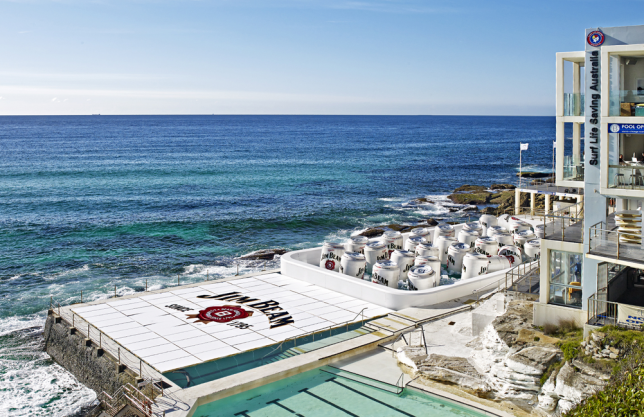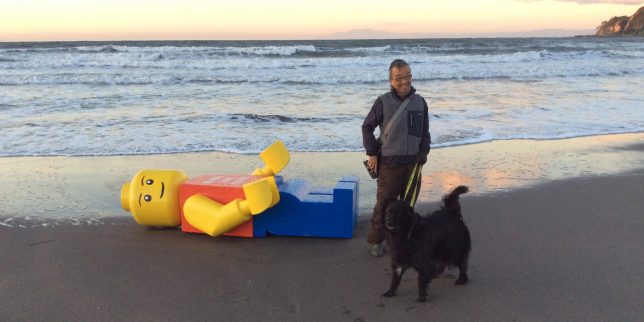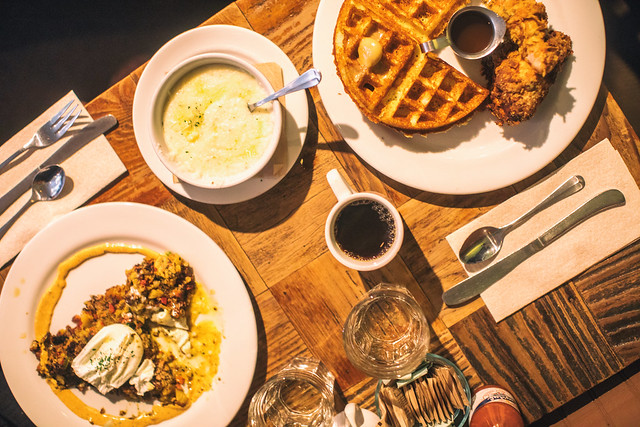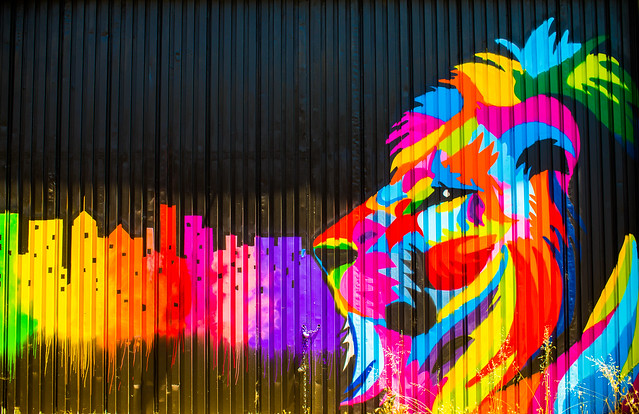People start doing photography (versus taking snaps or selfies) for many reasons. It might be a major life event coming up – new baby, wedding, special birthday – or that overseas trip saved up for over many years. It might be that the capabilities of your phone frustrate you enough to want to get real about photography. However it happens, suddenly you find yourself with an empty bank account and some form of camera gear that you now need to figure out how and where and maybe even, why to use it.

10 Reasons why photography is a great hobby
- Recording events and capturing memories
- Have fun
- Learning is good for the brain
- Health and fitness
- Creativity
- Travel
- Meet new people
- Join a photographic community
- Develop a personal style
- It’s all about the light
#1 Recording events and memories
Photography allows you to create images of events, times, and places. To both record what happened and allow you to share them with friends and family, either in digital format or more permanently with prints or photo books. By being able to capture a special moment in time, you carry the memory of that event forward with you, allowing you to share it and remember it with those that were there. Those memories become part of your history, perhaps family lore, not just stories passed down through the generations – but images as well. As the popular idiom says, “A picture is worth a thousand words”.

Memorable moment capturing the rare NZ Falcon
#2 Have fun
So much fun can be had with a camera. You could be out with the family at the beach or a picnic, local sports games, randomly roaming your city streets photographing strangers without them noticing, stalking wildlife, hiking up a mountain for a stunning view, or standing under the stars at 2 a.m. watching the Milky Way slowly move across the heavens. So many opportunities to do new, interesting, and fun things with your camera that you likely may not have otherwise done.
All sorts of things become interesting when they can provide you with material for photographic adventures. Cultural festivals, parades, sports events, a wander along the beach, exploring parts of your city previously undiscovered, architectural details on buildings, intricate details of flowers, people watching, difficulties of photographing wildlife, meeting people who have different interests and hobbies – just for a few ideas. Most people are willing to share their passion with you if you take some time to talk to them. There are endless opportunities for photographic inspiration – even the contents of your fridge or pantry can be fascinating when viewed through a macro lens. All you need to do is make an effort to look.

Hanging out with the zombies at a Zombie Run event.
#3 Learning a new skill is good for your brain
Research has shown that learning a new skill helps the brain and improves memory, and the more difficult the skill, the more improvement you get. Coupled with exercise, these two things are considered important for long-term brain health and neuroplasticity. Studies show that slower learning over time helps build strong new linkages within the brain.
New knowledge will accumulate over time, as you keep putting effort into learning a new skill. Given that photography has so many elements, the science of light, the technology of the camera and the creative artistic side, there is a lot to learn. So whatever your age, now is the perfect time to start learning photography.

#4 Health and fitness
Getting out of the house, walking about, or even hiking is often a side-effect of getting into photography. If you are into landscapes then you have to go to where the landscape scenes are, and that often means some form of exercise. Once you have enough camera gear – likely a body, some lenses, and a tripod – it can weigh a reasonable amount and you will need a bag of some kind to carry it comfortably if you are traveling any reasonable distance.
Some people prefer a more gentle form of exercise – for health or mobility reasons. Others may prefer multi-day hikes into stunning mountain scenery. Mountain biking, horseback riding, kayaking and similar sports are often popular modes of transport to get you to a new landscape and allow for photography along the way.
Camera gear is heavy, so it’s important to be aware of any health or safety concerns. Carrying heavy cameras on straps around your neck for a long time can be quite painful. People with disabilities or limited mobility might prefer a lighter weight option and there are many available these days. Although one of the downsides of digital photography, especially if you shoot RAW, is the amount of time you can spend in front of your computer, processing the images, so that needs to be considered into your fitness regime as well.

#5 Creativity
In her book, “Big Magic: Creative Living Beyond Fear”, Elizabeth Gilbert writes a great deal about creativity and inspiration. She says it is good for us as individuals, and that the world is a better place for having art in it. That feeling when you finally get the awesome sunrise photo or the perfect candid, maybe the aurora or a meteor shower, or whatever your passion is, that feeling when you finally get the image, makes it all worthwhile.
Being creative is something we don’t tend to allow ourselves to do as adults. Photography is a very acceptable form of creativity that allows endless flexibility in how you adapt it to your own personal style. That style can grow as you learn more and start to experiment with different things. Creativity is fun and it provides a necessary balance against the stressful demands of the modern lifestyle.

#6 Travel
Traveling to different parts of your own city or country, and if you are lucky enough to afford it, other parts of the world is a likely outcome of taking up photography. There is so much interesting stuff to photograph in other places including landscapes, wildlife, architecture, and people from other cultures. Travel broadens the mind and exposes you to new concepts and ideas and is an excellent learning opportunity, provides so much creative
Travel broadens the mind and exposes you to new concepts and ideas and is an excellent learning opportunity. It provides so much creative variety and possibilities for personal growth. Taking the opportunity to travel, even just a couple of hours drive or bus ride away, can provide entirely new situations and vistas. Be brave and venture forth.

#7 Meet new people
Meeting interesting new people in your travel and adventures is often an unintended side effect. Asking the locals for advice on how to find the way to a certain viewpoint may lead to them showing you the way. Chance encounters with people curious as to what you might be photographing can lead to directions to other points of interest. Maybe you organize a meetup with local photo enthusiasts in your area and you make a new friend, a new adventure buddy. A random chat in a cafe might lead to a new client.
If you are friendly and courteous with your camera, many people are often happy to pose. In some cultures, it may be appropriate to thank them with a small cash payment, so research that in advance. Engaging with other people, even with the barriers of language, means you make more of a connection, and the resulting images may be much more powerful and emotional. While keeping personal safety in mind, be brave and say hello.

#8 Join a photographic community
Being part of the photography community can be very supportive. Sharing your passion with other people around the world, who speak your language, understand your challenges, and have had similar experiences can very helpful. Online forums can be good places to find those secret local waterfall spots, where certain rare birds might be nesting or come to feed. People may be willing to offer assistance with problems, critique on your images, and it’s just generally a welcoming place to hang out and chat about your hobby.
Join our dPS community on Facebook!

Photographer in their natural state at a PhotoWalk
#9 Develop a personal style
There are many different types and styles of photography. Some people prefer to label things, put them into boxes and tell you that you have to fit within their preconceived ideas. Rubbish! One of the great joys of photography is its ability to be adapted to every individual’s desires, needs, or preferred style. There is space for all different approaches within photography from the classic landscape, nature, wildlife, street, portrait, sports styles to all the different variations in between.
Whatever your passion is, you can explore it via photography in whatever creative way you want. When starting out it pays to have an understanding of the basic guidelines for composition, but don’t let them limit you to always stay inside them. Challenge them, break them, and see what happens. It might work, it might not, but either way, it will be a learning experience.

#10 It’s all about the light
Whatever light you have at any given moment is the light you need to work with. Modification of the light might be required – it may need filtering, shaping or diffusing. You might need special gear to adapt to certain light conditions, e.g. astrophotography has certain types of lenses that are recommended, fast glass is recommended for situations where light levels will be poor – sports events inside gyms, music and stage events, churches for weddings, etc.

Too much light can also be a problem with harsh shadows and blown out highlights. Differential light where you have patches of bright light and shadow within the area you are working, which makes it difficult to get a good exposure. Learning to use a flash or another artificial light source has its own challenges as well as added costs in buying the hardware required.
Learning to work with the light available and knowing how to adapt to it to get the best image possible is one of the biggest challenges photographers face. Light has color, depth, dimensionality, texture, tone, shadow, and behaves in certain ways, dependent on some fundamental rules of physics. One day there will be a moment when you finally “see” the way a photographer does when you see how light falls, how light and shadow are interdependent, and how you can use them to add depth and drama to your images.

Summary
Photography adds so much value to our lives, by recording special events, people, or places, as well as helping us learn and grow as people. It allows you to share your life and experiences in more meaningful ways via images, either online or printed and given as gifts. Or perhaps you might be quietly puttering away in your home studio, perfecting the art of the macro lens.

Photography is a hobby that offers so many possibilities for creative expression, technical expertise, and sheer variety of ways to capture an image. Age is not a barrier to learning a new hobby and you can start with the camera on your phone if that’s what you have available. Start getting real now!
The post 10 Reasons Why Photography is a Great Hobby by Stacey Hill appeared first on Digital Photography School.

Digital Photography School

























































You must be logged in to post a comment.